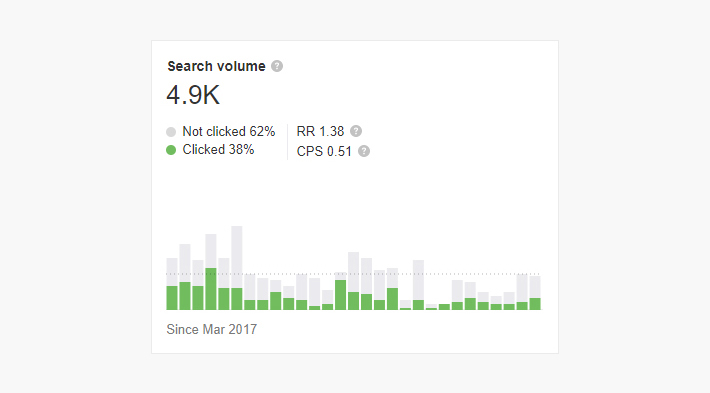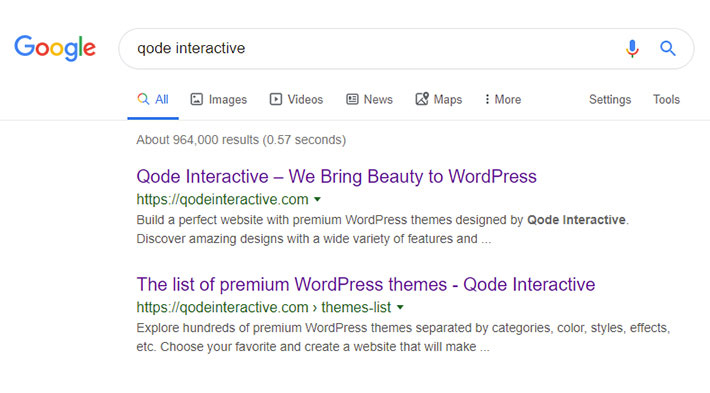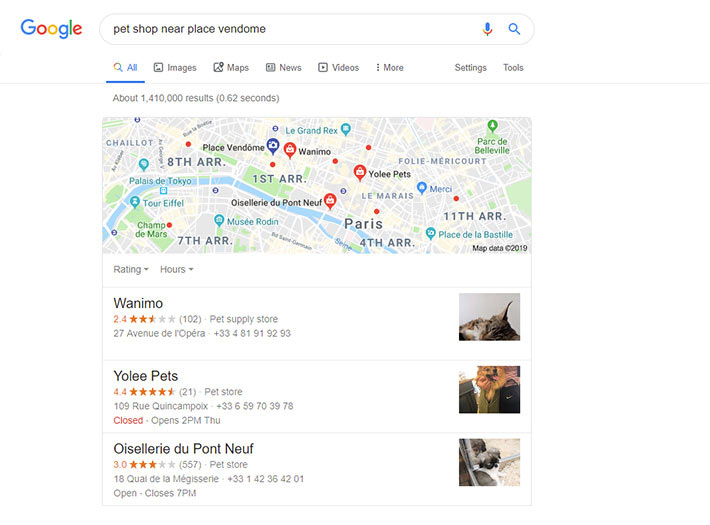What Is Keyword Research and How to Do It Right

SEO is a field that’s known for constant changes due to major search engines’ algorithm updates and the complex dynamics of online marketing trends. However, throughout all that, one thing has remained a staple of good content marketing and search optimization, and that’s keyword research.
Our business WordPress themes are calibrated with SEO demands in mind, and there are plenty of free SEO tools on the market that can help, but keyword research is one of those things that we still have to do by ourselves, for the most part, at least.
In this article, we’re going to talk about keywords and their importance, and we’ll cover some of the basic techniques of keyword research, so buckle up!
If you’d like to skip to any specific part of the article, just click on one of the links below:

Keywords can be described as terms, phrases, ideas or concepts that explain what your content is about. In SEO, specifically, keywords or keyphrases are the search terms people use to find information.
Let’s say you have a website. Take a page from it and try to boil down all its content into a single term or phrase. That’s your keyword for the page in question, if you did your SEO right.
So, a keyword is, at the same time, the search query used in a search engine, and the concentrated description of your web page and its content. By all content, we do mean all: text, images, videos, everything.
It’s important to note that, ideally, a keyword should be both these things: a description or the topic of your content, and a search query term. It’s only when the two coincide that we can actually talk about the correct use of keywords and proper SEO in general.
In order for your pages to rank for specific keywords, you need to use those keywords appropriately. But before you use them in your content, you have to find out what your keywords for a specific page should be. And that’s where keyword research comes in.

Absolutely, yes, no doubt about it. A lot has changed in terms of social engines’ algorithms over the years and, yes, proper keyword implementation is perhaps not the only thing that guarantees good ranking, but to think that it has lost some of its importance would be insane.
Google MUM (Multitask Unified Model), voice search, zero click search and other advancements have somewhat changed the way search works today, but keyword targeting still remains as relevant as ever. The whole point of keywords is that they represent user intent and help identify search objectives. Now, thanks to AI becoming better and better in understanding the nuances in search input, correlating it to intent, search engines focus more on what they understand as intent than what the actual word is.
By using keywords in meta data and in content, we signal to search engines as to what the content is about and the algorithm then matches it to the user/search intent. Consequently, it’s clear that it is still necessary to use target keywords, otherwise there’ll be no way of aligning the content with search intent it aims to fulfill.
In short, regardless of the ever-evolving search engine logic and behavior, keywords absolutely remain relevant and vital to any SEO strategy.
Simply put, keyword research is a set of techniques that we use to discover words, terms or phrases that people use in search engines. It represents an effort to find out what people are searching for and to match those queries with your content.
Ideally, keyword research should produce results (keywords) that describe what you offer, but in a language that your target audience (searchers) would use.
The internet is chock-full of websites from every possible industry and niche. Whatever your specific line of business, chances are there are hundreds of businesses just like yours out there. And what’s worse – most of them probably rank better than your site (no offense).
If this is the case, then it means you’re not using your keywords right and that you need to focus on keyword research. You need to pinpoint exactly which keywords trigger your target audience and produce the desired results (which is: traffic and conversions).
Although it does bear a big, scary name, keyword research is actually not hard to do. However, it is a process with a few rather scientific traits. It is systematic and uses very precise data and data analysis, which we’ll talk about in a bit.

Keyword research is one of the pillars of good SEO practice. In fact, it may even be considered the basis upon which all other SEO techniques are executed. It comes before content production, before on-site SEO and, of course, before promotion.
Think of keyword research as a form of traditional market research. It’s your starting point and the point of reference for everything that comes afterward. It helps you feel the pulse of your target audience and sets the direction for your SEO campaign.

A common ailment of many online businesses is that they don’t understand that what they offer and what they want to rank for can be completely different from what the target audience is searching for. Well, maybe not completely different, but definitely coming in a different form and phrasing. In order to provide the right answers, you need to anticipate the questions, which means – the keywords that are going to be used.
A big part of this anticipation process is figuring out who your audience is. For this, you will have to ask yourself some questions. Let’s say you’re in the bicycle repair business. Some of the useful questions you might want to ask include:
-
What kind of bicycle repair are people searching for? (fixie, mountain bikes, kids bikes, etc)
-
Who are the people searching for bicycle repair? (age, gender, location)
-
At what times do people usually search for bicycle repair? (time of the day, day of the week, season)
-
What questions do people ask when searching for bicycle repair?
-
What exact phrases do they use?
-
Where do people searching for bicycle repair come from? (locals, tourists)
-
Would they also be interested in buying bicycles?
-
What is the economic profile of people searching for bicycle repair?
And so on.
As we said earlier, generic, blanket keywords simply won’t do. You need to understand the mindset of your searchers/potential customers. Once you’ve answered these questions, you’ll be one step closer to formulating your perfect keywords. Depending on the audience, those may include cheap bicycle repair, bike repair in Trenton, bike spring overhaul, fast and reliable bicycle repair, cheap kids bikes on sale, bicycle repair and exchange, and so on. You get the idea.
In this process, you have to be equal parts psychologist, anthropologist, sociologist, marketing expert, IT expert and just another average Joe looking things up online.
Once you have a general idea as to what your search terms (keywords) should be, it’s time to narrow them down. The next step is to discover as many keywords as you can. Your initial keywords, the ones you want to rank for, should serve as your starting point.
In this phase, it would be a good idea to use a keyword research tool (we’ll talk about those later in this article) to find out similar search terms, ones that you yourself wouldn’t have thought of, but that rank well for your particular topic or niche.
Keyword discovery is important because it allows you to bypass your “blindspot,” and to find all the potentially powerful keywords you initially overlooked. In the case of our bicycle repair shop, you may find that keywords such as how to adjust bike brakes, bicycle parts diagram, mountain bikes maintenance, repairs, bike repair shop near me and similar phrases may help you rank better than the simple bicycle repair shop.

All keywords can roughly be divided into nine categories. You are probably going to use two or more of these and perhaps some of them won’t be useful for your specific needs, but nevertheless, it’s important to know what they are:
-
Short-Tail Keywords : these, as their name suggests, are rather concise and in general contain three words or less. They are also known as head terms and can be defined as the principal keywords for your specific niche. Because of their short and specific nature, they tend to have a very high search volume and are quite competitive. Also, the specific search intent for these keywords is often hard to pinpoint. In case of our bike repair shop, the head term would be bike repair.
-
Long-Tail Keywords : these keywords, or better – keyphrases, are longer than three words and are, therefore, much more specific. As such, their search intent is easy to identify, they are less competitive but have a lower search volume. Examples: cheap bicycle spare parts wholesale, spare tires for kids bikes, fixie bike tire puncture repair, cheap bicycle repair Austin, etc.
-
Short-Term Fresh Keywords : these keywords are characterized by a short period of intense “hype,” after which they basically die off (e.g. Superbowl 2018 winner, Kim and Kanye baby, etc). Their search volume is highly variable, the competitive rate is generally medium while their conversion rate is usually high.
-
Long-Term Evergreen Keyword : as the name implies, these keywords are always relevant. Their search volume is moderate, they are medium competitive and they are generally favorable for the authoritativeness of the content.
-
Product-Defining Keyword : these are the keywords that describe your product. They have a low search volume, due to their specificity, as well as low competition rate. Their search intent is clear and the conversion rate tends to be high. Examples: torque wrench, bike tool set, bicycle chain checker.
-
Customer-Defining Keyword : this kind of keyword refers to your target customer, for example for designers, books for kids, etc. Like product-defining keywords, they have a low search volume and low competition, but high conversion rates and a very specific search intent.
-
Geo-Targeting Keyword : this sort of keywords targets a specific location (bike repair near Garden Grove, bike tire shop in East Vancouver…) and, as such, is essential for small local businesses. It’s the easiest keyword to discover, has a low search volume, low competition, very high conversion rate and clear, specific search intent.
-
LSI Keyword : Latent Semantic Indexing (LSI) keywords are thematic keywords that are closely related to the main keyword. For instance, if your main keyword is bicycle repair, your LSI keywords might be cheap bicycle repair, bicycle repair near me, and so on. They are essential in content planning and creation and can be discovered using “suggested search.” They have a low search volume and competition and high conversion rates.
-
Intent Targeting Keywords : as the term suggests, these are the keywords that target your customers’ projected search intent. They can be:
- informational (with words like “what is,” “benefits of,” “how to”)
- commercial (“ingredients,” “shipping fee,” “features”)
- transactional (“best price,” “sale,” “money back”) .
In simple terms, keyword difficulty refers to how hard it is for your site to rank for a particular search term or keyword. It is a complex metric that many people confuse with keyword competition. Keyword difficulty does encompass competition, but it’s just one of the factors that are taken into consideration when establishing the difficulty for a particular keyword or term.
One of the most important factors that establish keyword difficulty is search volume. Search volume represents the number of searches performed for a particular keyword or term. Depending on the tool you’re using, it can be expressed per month or per a given period (e.g. since May).

(Ahrefs analysis for the keyword bicycle repair)
Once you start researching keywords for your content, you will notice that their search volume varies greatly from one keyword to another, even though they seem similar or almost the same. The devil is in the details and you definitely want to pay extra attention here in order to come up with the perfect keyword.
In this phase of keyword research, the question “What is good search volume?” comes right up but unfortunately, it remains without a universal answer. In many cases, it is definitely better to aim for a keyword that plenty of people search for, but those with a lower search volume tend to come with far less competition.
One thing to keep in mind here is that keywords with very high search volume are often a sign of unclear search intent. This means you may think your visitors came for one thing while in fact they came for something else.
It’s generally a good idea to go for very specific search terms with somewhat lower search volume (and competition), and that’s why so many SEO experts recommend focusing on long-tail keywords.
SERP features are also an important factor for keyword difficulty, although it’s not something you can easily predict. If a result page for a keyword includes a lot of SERP features, like featured snippets, local packs, shopping results and knowledge graphs, the difficulty for that particular keyword will, naturally, increase.
Also, going after the same exact keywords as big, well-established brands, often means fighting a losing battle, especially if you’re only just starting out.
With SERP features becoming more and more present on result pages and with Google coming up with new features basically each month, it’s important to understand in which format users want to consume the information we deliver to them.
In general, we all want the answers to be quick, direct and super-clear. The format of the results will depend on the search intent. For instance, informational search queries (where the search intent is to get specific information) get direct answer boxes and the searcher gets instant, clear information without having to click on any of the links below this particular search item. If your content provides direct information, your keywords should include terms such as who is, where is, how to, how old, how big, and so on.

We talk about navigational search intent when we want to get to a specific web location. To rank high for this sort of search intent, the keyword should, clearly, involve the name of our web location, or in the case of our website, qode interactive.

Transactional queries are more complex since they involve not just the intent to get something done, to perform a transaction (commercial or otherwise), but they also involve local search.

Bear in mind that whether your pages will turn up in the form of a SERP feature does not depend merely on your keywords. Still, these formats are important because they can teach you a lot about search intent – what people are searching for, and how – which, in turn, can help you gauge your keywords to perfection.
Everything we mentioned so far in this article works as an excellent general recommendation for fine-tuning your keywords and getting the most out of content marketing. However, focusing merely on these techniques that apply to pretty much every website can sometimes prevent us from seeing what really matters in our particular case, or more precisely – in our niche.
Successful keyword research depends greatly on your understanding of your own niche.
-
Think like a potential customer : instead of coming up with neutral, generic keywords, try to think of ways a customer (or yourself, for that matter) would search for something. For example, if you’re a dentist, you may want to include keywords like painless root canal, tooth filling under $60, best teeth whitening, and so on, instead of the classics like cheap dentist.
-
Talk to your customers : this is the best way to find out what’s really on their mind, what they need from you and what they feel you should be doing better, and then turn that into keywords. If, due to the nature of your business, you’re rarely in direct contact with your clients, there are still plenty of tools you can use to get feedback, from onboarding forms to chat windows, and so on.
-
User-generated content : when people can’t find the answers anywhere online, they turn to user-generated communities and ask what they need to know. These places are true goldmines for keyword research, especially when you’re a bit stuck. You can use either widespread communities like Reddit and Quora, or more industry-specific ones (these will depend on your niche – in our example above, we used Stack Overflow, created for and by developers).
-
Social networks : people also tend to ask for advice and information on the most popular social networks, especially Facebook (groups and comments) and Twitter, as well as LinkedIn.
In most cases, you probably won’t use the exact same phrasing, but you can use these questions as a starting point and formulate a great keyword that will work well with your content (e.g. how to remove location tag in WordPress theme).

If all this sounds like too much work – don’t worry. As we mentioned a couple of times earlier, there are some (free and paid) tools you can use to perform successful keyword research:
This keyword research tool is equal parts efficent and easy to use. In addition to a keyword explorer with metrics that include keyword difficulty, search volume and clicks per region or country, it also features a site explorer, content explorer, rank checker, and other handy tools. It’s also great for backlink strategy analysis.
Although it may be more basic feature-wise compared to other tools, this keyword planner has one major advantage: its results come straight from the source, i.e. from Google. The downside is that it’s designed primarily for ads, so that’s where its main focus lies.
The online marketing giant has an excellent keyword research tool that we particularly like because, in addition to standard suggestions, it also helps you get some pretty smart ones for your related keywords. The pack of features includes search volume and difficulty metrics, predictive keyword metrics, search in question format, competitive analysis, and data export, among others. It also offers “priority” as a unique metric, basically telling you whether you should use a particular keyword or not.
SEMrush is more than just a keyword research tool – it’s a comprehensive solution for online visibility and marketing analytics that also happens to incorporate some great SEO tools. In addition to tons of excellent keyword ideas, it also displays keywords your competition is already ranking for. Finally, the unique Keyword Magic tool that comes in this pack pulls out amazing keyword suggestions from SEMrush’s own enormous keyword database.
KW Finder is a tool that excels with its intuitiveness. It is ideal for beginners, and also for those who’re in a bit of a rush, because it displays the difficulty score next to every keyword, so you don’t have to click on each of them to see it.
We like this keyword research tool because of its unique, quirky interface and the fact it’s completely free. In addition to keyword suggestions, Answer the Public integrates with another free tool, called Keywords Everywhere, which ranks the suggested keywords by the search volume.

After you have researched and confirmed your primary, secondary, related and other sorts of keywords, it’s time to put them to use via a carefully formulated content strategy.
Obviously, you can’t just slap a bunch of keywords onto your pages and call it a day. You need to incorporate them in your content in a natural, organic way that won’t seem suspicious to search engine bots or off-putting to real users.
In general, you should use unique keywords and keyphrases across your pages, both in the body of your content and in all the places search engine bots are known to look at. These include:
-
title tags (HTML elements displayed on SERPs, specifying the title of your content)
-
URLs (your page’s web address)
-
H1 (HTML tag indicating a headline)
-
meta descriptions (an HTML tag or snippet of some 150+ words summarizing your page’s content)
-
image alt attributes (textual information for an image).
Above all, you should avoid clickbaiting. This is something that both the users and the crawlers equally despise, and that will definitely get you pushed to the bottom of the SERP barrel. Not to mention that, when you offer purposely vague content titles, URLs and descriptions, you’re not just being deceitful – you’re also taking away a lot of power from your keywords.
In addition, there’s something to be said about the number of keywords you want to use to achieve the best effect. You’d think that the “the more the better” rule applies, but it’s not that simple. “Less is more” is another rule that you definitely shouldn’t follow. Achieving the optimal keyword density can do wonders for your website’s positioning in SERPs and there’s a formula you can use.
Also, have you ever wondered what happens when someone misspells a keyword in their search query? Can you still rank for that? There are some pros and cons in ranking for misspelled keywords and typos so that’s definitely another thing you want to consider.
Next, you will also want to make sure you’re ranking for the right keywords. There are a couple of tools and techniques to use (see the linked article) which can help you determine whether your keyword research efforts are paying up.
Finally, after you’ve carefully researched and applied your keywords, you should consider creating keyword clusters. Keyword clustering is not the quickest of SEO methods but it’s one that can take you a long way when it comes to your SERP positions, so make sure to check it out.
Wrapping It Up
Keyword research is one of those things we get better at with time. If you’re only just starting out, it helps to have a strong strategy and follow its steps until you feel confident enough to start drawing outside the lines:
And that’s it! You will now have a well-researched keyword list that will help you reach your business goals. Just make sure to review the list occasionally and freshen it up with new, relevant keywords.



